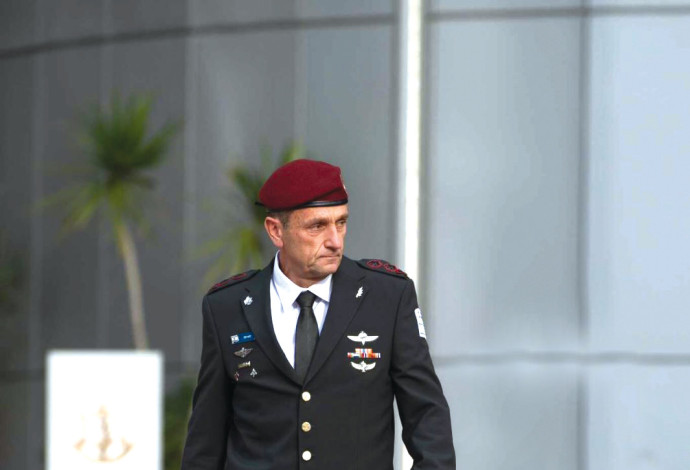
 Nie stosujcie wobec Żydów dziwacznej, teoretycznie chrześcijańskiej etyki
Nie stosujcie wobec Żydów dziwacznej, teoretycznie chrześcijańskiej etyki
Elder of Ziyon
Tłumaczenie: Małgorzata Koraszewska
W artykule opublikowanym w New York Times wyświęcony pastor Esau McCaulley omawia, jak ważne jest, by duchowni zajmowali się teologicznymi kwestiami związanymi z wojną, zwłaszcza obecną wojną w Gazie.
Przeanalizujmy jedno rzucone mimochodem zdanie w artykule, zdanie uważane za tak oczywiste, że nie wymaga linku: pokazuję jego kontekst i zaznaczam je pogrubioną czcionką.
Centralna nauka chrześcijaństwa wywodząca się z Księgi Rodzaju, tekstu, który dzieli ze swoimi żydowskimi bliźnimi, utrzymuje, że każdy człowiek, niezależnie od kraju pochodzenia, jest stworzony na obraz Boga i zasługuje na szacunek. Nie jesteśmy osamotnieni w tym przekonaniu. Podobną ideę wyrażają inne tradycje religijne i świeckie. Daje to szansę na współpracę. Wiara w nieocenioną wartość człowieka może być moralną kotwicą w wzburzonym morzu sprzecznych trosk.
Nie ma bardziej istotnego momentu na podkreślanie tej podstawowej prawdy niż czas wojny, kiedy człowieczeństwo przeciwników zostaje odrzucone. Walka o godność cywilów palestyńskich i izraelskich jest aktem teologicznym, gdy cele zwycięstwa i ochrony niewinnych walczą między sobą o supremację. Nadanie równej wartości istotom ludzkim po obu stronach konfliktu nie oznacza tworzenia moralnej równoważności między Izraelem a Hamasem. Wymaga uznania życia osób niewalczących w Izraelu i Gazie za równie święte.
Nie mam powodu wątpić, że jest to trafne przedstawienie etyki chrześcijańskiej, że każde życie ludzkie jest równie cenne.
Ale czy wszystkie armie naprawdę ignorują człowieczeństwo swoich przeciwników?
IDF z całą stanowczością tego nie robi. I, twierdzę, że Kodeks Etyczny IDF jest bardziej etyczny niż etyka opisana przez tego pastora.
„Ruach Cahal” IDF-u wymienia trzy podstawowe wartości. Dwa z nich to:
1. Celem IDF jest ochrona istnienia państwa Izrael, jego niepodległości oraz bezpieczeństwa jego obywateli i mieszkańców.
3. IDF i jej żołnierze są zobowiązani do ochrony godności ludzkiej. Należy cenić wszystkich ludzi, niezależnie od rasy, wyznania, narodowości, płci, statusu czy roli.
Wśród dziesięciu dodatkowych wartości, które wywodzą się z wartości podstawowych, są:
(1) Życie ludzkie
Żołnierz IDF będzie przede wszystkim chronić życie ludzkie, uznając jego najwyższą wartość i naraża siebie lub innych na ryzyko wyłącznie w zakresie niezbędnym do wypełnienia jego misji.
Świętość życia w oczach żołnierzy IDF znajdzie wyraz we wszystkich ich działaniach, w przemyślanym i skrupulatnym planowaniu, w bezpiecznym i inteligentnym szkoleniu oraz we właściwym wykonywaniu ich misji. Oceniając ryzyko dla siebie i innych, będą stosować odpowiednie standardy i będą stale dbać o ograniczenie narażania życia w zakresie niezbędnym do wykonania misji.
(2) Czystość broni
Żołnierz IDF będzie używał siły zbrojnej jedynie w celu ujarzmienia wroga w niezbędnym zakresie i ograniczy użycie siły, aby zapobiec niepotrzebnemu zaszkodzeniu ludzkiego życia, zdrowia, godności i mienia.
Czystość broni żołnierzy IDF polega na ich samokontroli w użyciu siły zbrojnej. Będą używać broni wyłącznie w celu osiągnięcia swojej misji, bez powodowania niepotrzebnego narażania życia lub zdrowia ludzkiego; godności lub mienia, zarówno żołnierzy, jak i ludności cywilnej, ze szczególnym uwzględnieniem bezbronnych, czy to w czasie wojny, czy podczas rutynowych działań związanych z bezpieczeństwem, czy też w czasie braku walki lub w czasie pokoju.
Każde życie ludzkie jest święte. Ale każdy przedkłada życie jednych nad inne: swoje, swojej rodziny, swojego plemienia, a w przypadku żołnierza – przede wszystkim swoich towarzyszy, swojego narodu i własnych obywateli.
Twierdzenie, że każde życie ludzkie jest równej wartości, może być ładnym hasłem, ale w rzeczywistości nikt nie trzyma się tej normy. A jeśli ktoś chce żyć według tego standardu etycznego, może porzucić swoje rodziny, aby ratować życie najbardziej bezbronnych ludzi na świecie, ponieważ taki standard nie tylko na to pozwala, ale wydaje się tego wymagać.
Nie mają jednak prawa nalegać, aby inni żyli według ich niemożliwych, niepraktycznych i w ostatecznym rachunku niemoralnych standardów.
Kodeks Etyczny IDF jest w najwyższym stopniu etyczny. Nie „odrzuca człowieczeństwa” Palestyńczyków, bez względu na to, co twierdzą media. Jednak żołnierze traktują priorytetowo obronę własnych towarzyszy i narodu, a w tej wojnie oznacza to zapewnienie, że Hamas nie będzie mógł spełnić swoich „etycznych” standardów ludobójstwa wobec Żydów.
Etyczny imperatyw zniszczenia Hamasu, zanim będzie mógł zorganizować kolejny 7 października, jest o wiele ważniejszy niż pozwolenie mu na przetrwanie i ponowny atak. Co oznacza, że cywile, których Hamas używa jako żywych tarcz, są zabijani nie dlatego, że ich życie jest bezwartościowe, ale dlatego, że IDF przypisuje najwyższą wartość swoim obywatelom. Giną, ponieważ Hamas używa ich jako głównej linii obrony, a za ich życie odpowiada Hamas.
Świadomość, że media będą winić Izrael za śmierć tych, których Hamas cynicznie wykorzystuje, jest drugą linią obrony Hamasu. W pewnym sensie artykuły takie jak ten, które pośrednio opisują IDF jako bezduszne potwory, również wykonują plany Hamasu i mogą ostatecznie pomóc Hamasowi w osiągnięciu jego ludobójczych celów.
Jakie to etyczne!
IDF rzeczywiście stoi w obliczu trudnych problemów etycznych. Wszyscy eksperci, którzy badali metody IDF, doszli do tego samego wniosku – przywiązuje się bardzo dużą wagę do ludności cywilnej po stronie wroga, wyższą niż większość lub wszystkie armie w historii. Hamas o tym wie i wykorzystał tę moralność do osiągnięcia własnych celów, jakim jest zachowanie własnego życia i mordowanie Żydów.
Jeśli potrzebujesz dowodu, przeczytaj historię o tym, jak grupy terrorystyczne w Gazie zwerbowały pacjentkę poparzoną w Gazie, by przedostała się do Izraela i próbowała wysadzić się w powietrze w szpitalu, w którym ją leczono w 2005 roku.
Ironią losu jest to, że Izrael uważa się za winnego tego, co jest całkowitym przeciwieństwem jego rzeczywistego zachowania.
Izrael poświęcił znacznie więcej uwagi tym kwestiom, niż kiedykolwiek zrobił to publicysta „New York Timesa”. Wygłaszanie wykładów na temat moralności przez tych, których koncepcja moralności przygotowałaby grunt pod zwycięstwo prawdziwego zła, jest obrazą dla wszystkich Izraelczyków. A każdy kodeks moralny, który pozwala autentycznie złej stronie na ciągłe próby unicestwienia wszystkich Żydów, aż Żydzi nauczą się bronić „właściwie”, nie jest żadnym kodeksem moralnym.
Zawartość publikowanych artykułów i materiałów nie reprezentuje poglądów ani opinii Reunion’68,
ani też webmastera Blogu Reunion’68, chyba ze jest to wyraźnie zaznaczone.
Twoje uwagi, linki, własne artykuły lub wiadomości prześlij na adres:
webmaster@reunion68.com



